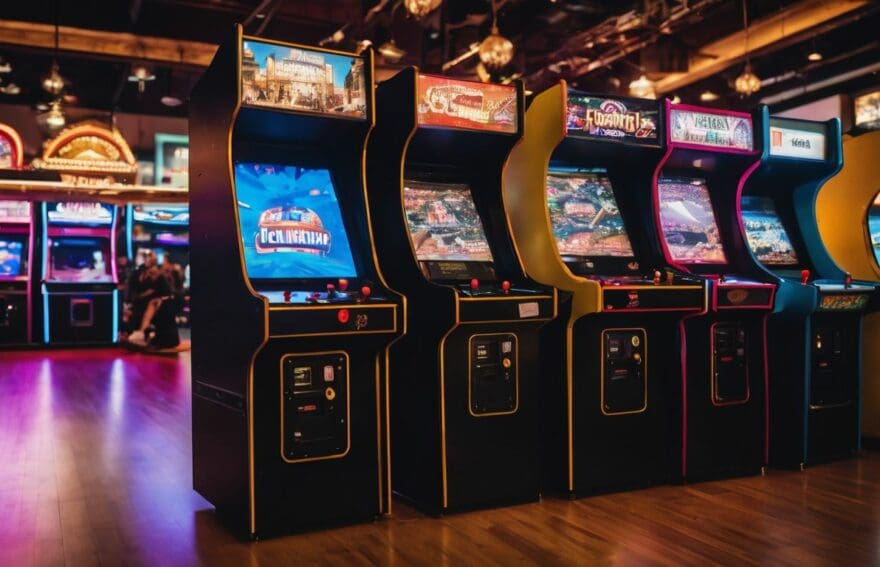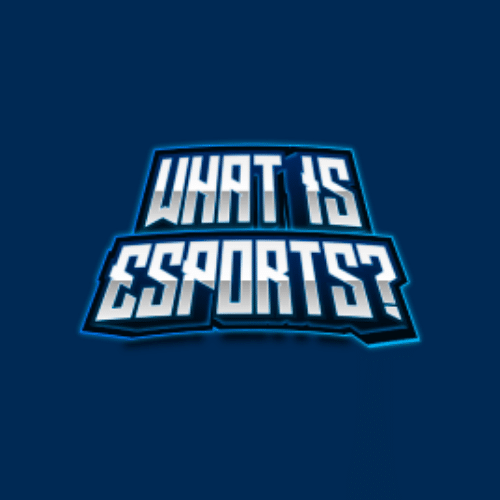Breaking Down the Basics: What Is the Fighting Game Community (FGC)?

Updated On: November 29, 2025 by 
Have you ever found yourself enthralled by the captivating world where virtual skirmishes transform into a global phenomenon? It’s certainly a concept that piqued our curiosity, and upon immersing ourselves in this electrifying realm, we stumbled upon the heart of it all—the Fighting Game Community (FGC).
This corner of the universe is alive with fervour and rivalry. Our forthcoming article delicately unravels the intricacies of this effervescent arena, offering you a glimpse into its rich heritage, unique culture, and how you can get stuck in with the fray.
Fancy embarking on a remarkable adventure? Let’s journey together and unearth the mysteries that lie within!
History of the Fighting Game Community (FGC)
The Fighting Game Community (FGC) has its roots in the 1990s arcade scene, where players gathered to compete in games like Street Fighter and Mortal Kombat. Over the years, the community has grown and evolved, with the rise of online gaming and esports contributing to its expansion.
Today, the FGC is a thriving global community with a rich history of competitive play.
Beginnings in the 1990s
Turning back the clock to the 1990s, arcades were buzzing with life as the heartbeat of our nascent community. Classic titles like Street Fighter and Mortal Kombat drew us in with their joystick waggling and button mashing glory.
We embraced these games, learning every combo and special move by heart. They weren’t just games; they were duels of skill, strategy and sometimes a bit of luck.
Our passion for these electronic brawls soon outgrew the arcades. It spilled into living rooms and local tournaments as we carried bulky CRT TVs and consoles under our arms from one venue to another.
Early competitions paved the way for what would become legendary events, setting the stage for future generations of players to take up fight sticks in pursuit of victory. The term ‘EVO’, now synonymous with top-tier competitive play, started taking root during this era, hinting at the grandeur that was yet to come in our world of digital combat sports.
Growth in the 2000s
In the 2000s, the Fighting Game Community (FGC) experienced significant growth, with the emergence of new titles such as Street Fighter III: Third Strike and Super Smash Bros. Melee captivating players worldwide.
This decade marked a turning point for competitive fighting games, as advancements in technology led to more sophisticated gameplay mechanics and online connectivity. The release of popular titles like Marvel vs.
Capcom 2 and Tekken 5 also contributed to the expansion of the FGC, drawing in a larger player base and fostering a more robust tournament scene.
Furthermore, the rise of social media platforms and online forums provided a space for FGC enthusiasts to connect and share their passion for fighting games. As communities flourished on platforms like Shoryuken.com and EventHubs, players could access valuable resources such as character guides, match videos, and tournament schedules.
Current state
After experiencing significant growth in the 2000s, the current state of the Fighting Game Community (FGC) is vibrant and dynamic. The community continues to thrive, with a steady increase in the number of players participating in tournaments and events both online and offline.
From regional competitions to international championships like Evo, there are numerous opportunities for FGC enthusiasts to showcase their skills and compete at various levels within the community.
Moreover, diversity remains a cornerstone of the FGC as it continues to welcome players from all backgrounds and skill levels. The inclusivity within the community fosters an environment where individuals can connect, learn from each other, and form lasting friendships while engaging in their shared passion for competitive fighting games.
Culture of the FGC
The Fighting Game Community (FGC) prides itself on its inclusivity and diversity, welcoming players from all backgrounds and walks of life. With strong community values and etiquette, the FGC fosters a supportive environment for everyone to enjoy their love for fighting games.
Inclusivity and diversity
The Fighting Game Community prides itself on its inclusivity and diversity, welcoming players from all walks of life. Gamers of different backgrounds, ethnicities, genders, and skill levels come together in the FGC to share their love for competitive fighting games.
This inclusive environment fosters a sense of camaraderie and mutual respect among community members, creating a supportive space where everyone feels valued and accepted.
Embracing diverse perspectives and experiences enriches the FGC, contributing to a dynamic gaming culture that celebrates individuality and unity. Players find common ground through their shared passion for fighting games while appreciating the unique contributions each member brings to the community.
As a result, the FGC continues to thrive as an inclusive hub for gamers seeking like-minded individuals who share their enthusiasm for competitive gaming.
Community values and etiquette
The FGC prides itself on fostering an environment of respect and sportsmanship. Players are encouraged to exhibit good conduct, both in-person and online, towards their fellow competitors.
It’s common for experienced players to offer guidance and mentorship to newcomers, helping them improve their skills and knowledge of the game mechanics. Embracing diversity is integral to the FGC’s values, as members from all backgrounds are welcomed with open arms.
The community emphasises creating a safe space where everyone can openly express themselves without fear of discrimination or prejudice.
As part of upholding these principles, it’s important for gamers within the FGC to be mindful of their interactions, treating others with kindness and consideration. By embodying these values, the Fighting Game Community continues to foster a positive atmosphere that enriches the gaming experience for all its members.
Tournaments and Events
Major tournaments such as Evo and regional events play a significant role in the FGC, providing platforms for players to showcase their skills and compete at a high level. These events also serve as hubs for the community to come together and celebrate their love for fighting games.
Major tournaments such as Evo
- Evo features intense competition where players battle it out for fame, glory, and substantial cash prizes.
- The event also serves as a platform for developers to reveal new content or upcoming titles within the fighting game genre.
- Spectators can indulge in the electrifying atmosphere as top players clash with their unforgettable skills and strategies.
- Evo isn’t just about the competitions; it’s a vibrant celebration of the Fighting Game Community’s culture and camaraderie.
- Players and fans get to connect with each other, participate in side events, meet industry icons, and immerse themselves in all things related to fighting games.
- The tournament’s grand finals are often highly anticipated spectacles that draw massive audiences both online through streaming platforms and at the live venue itself.
- Each year presents new surprises, upsets, and memorable moments that further solidify Evo’s standing as one of the must-see events for both players and enthusiasts alike.
- Whether you’re a seasoned competitor or simply an avid fan of fighting games, attending or following Evo is an experience that captures the heart of what makes the FGC so special.
Regional and local events
After attending major tournaments such as Evo, many FGC enthusiasts also look forward to participating in regional and local events. These events offer a more intimate setting and provide opportunities for players to engage with their local gaming community.
- Local FGC meetups often take place at gaming cafes, comic book shops, or dedicated gaming venues where players come together to practise, compete, and socialise.
- Regional tournaments allow players to test their skills against competitors from nearby areas and showcase their prowess on a larger platform within their community.
- Smaller-scale events like casual gaming nights or mini-tournaments are common in local FGC scenes, fostering a welcoming environment for new and experienced players alike.
- Local events may feature specific game titles or themes, catering to the preferences of the regional player base and providing diverse opportunities for competition.
- These gatherings also serve as a hub for sharing strategies, discussing gameplay mechanics, and learning from one another in a supportive and collaborative atmosphere.
- Organisers of local FGC events often work closely with community members to create engaging experiences that cater to the unique interests and preferences of the players involved.
- Such events contribute significantly to strengthening the bonds within the local FGC communities, fostering friendships and connections beyond competitive gameplay.
- Given the accessibility of regional and local events, they play an essential role in nurturing talent and cultivating a sense of belonging among gamers in various locations.
Resources for Improving in Fighting Games
– Online communities and Discords provide a platform for players to discuss strategies and connect with others.
– Learning resources, guides, YouTube channels, and websites offer tutorials and tips for honing fighting game skills.
Online communities and Discords
- Online forums and social media groups dedicated to specific games or the FGC at large provide spaces to share strategies, discuss game mechanics, and arrange meet-ups for online play or local events.
- Discord servers are popular for real-time communication, allowing players to join specific channels for different games, regions, or topics within the FGC.
- Many professional players and content creators have their own Discord servers where fans can engage with them directly, learn from their gameplay, and receive tips on improving at specific fighting games.
- Streaming platforms like Twitch offer opportunities to watch live gameplay from top-tier players as well as interactive chat rooms where viewers can discuss and analyse matches in real time.
- YouTube channels focused on fighting game tutorials, match analyses, and combo breakdowns serve as valuable educational tools for players looking to level up their skills.
Learning resources and guides
- Comprehensive video tutorials covering game mechanics and advanced techniques
- In – depth character guides providing insights into specific fighters’ strengths and weaknesses
- Frame data analysis, which allows players to study the exact properties of each move in the game
- Strategy articles discussing effective tactics for various situations in fighting games
- Discord communities where players can ask questions, share knowledge, and find training partners
- YouTube channels dedicated to analysing high – level gameplay and breaking down strategies
YouTube channels and websites
To improve your skills in fighting games, you can access a wealth of resources on YouTube channels and websites. These platforms offer tutorials, strategy guides, and gameplay analysis to help you level up your game. Here are some popular YouTube channels and websites frequented by the FGC:
- Maximilian Dood – This YouTuber provides entertaining and educational content on various fighting games. His in-depth analyses and character breakdowns are valuable for both beginners and experienced players.
- EventHubs – This website offers up-to-date news, tier lists, and community discussions related to the FGC. It’s a great place to stay informed about the latest developments in the fighting game scene.
- Sajam – Known for his insightful commentary on high-level matches, Sajam’s YouTube channel is a treasure trove of analysis and strategy breakdowns. His videos can help you understand the deeper aspects of competitive play.
- Shoryuken – As one of the oldest and most respected fighting game websites, Shoryuken provides a comprehensive collection of articles, forums, and event coverage that caters to all skill levels within the FGC.
- Core-A Gaming – This YouTube channel delves into the psychology behind fighting games, offering intriguing insights into mindset, decision-making, and strategic thinking during gameplay.
- Dustloop – If you’re looking for detailed frame data or character-specific information for various fighting games, Dustloop is an invaluable resource with an extensive database.
- JMCrofts – With a focus on beginner-friendly content, this YouTube channel breaks down fundamental concepts in fighting games while also providing practical tips for improvement.
- SRK Wiki – A part of Shoryuken.com, SRK Wiki hosts an expansive collection of information on different fighting game titles, including move lists, combo guides, and advanced mechanics explanations.
Conclusion
In conclusion, the Fighting Game Community (FGC) is a passionate and diverse group of gamers who love competitive fighting games. The FGC organises tournaments and events, providing a platform for players to showcase their skills.
This community values inclusivity and forms strong friendships both in person and online. With its unique culture, dedicated fan base, and strong online presence, the FGC continues to thrive as an integral part of the gaming world.
FAQs
1. What exactly is the Fighting Game Community (FGC)?
The Fighting Game Community, or FGC, is a global group of players and fans who come together to play, watch, and discuss fighting games at events and online.
2. Can anyone join in on FGC events?
Absolutely! Whether you’re just starting out or have mastered many fighting game techniques, all are welcome at fighting game community events where you can learn from FGC players and enthusiasts.
3. Why do people get excited about the events in the FGC?
Fighting game events are thrilling because they showcase top-level competition with skilled gamers using intricate strategies and mechanics unique to arcade fighting games.
4. What might I learn by being part of the FGC?
As a member of the FGC community, you’ll learn different fighting game strategies, pick up new glossary terms specific to this video game culture, and improve your own gaming skills by playing or watching others.
5. Is the FGC only about tournaments?
Nope! The FGC isn’t just about fierce gaming tournaments; it’s also a welcoming online gaming community where folks celebrate shared interests in arcade-style fights within video game culture.


